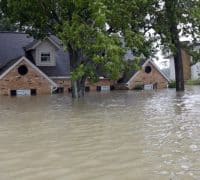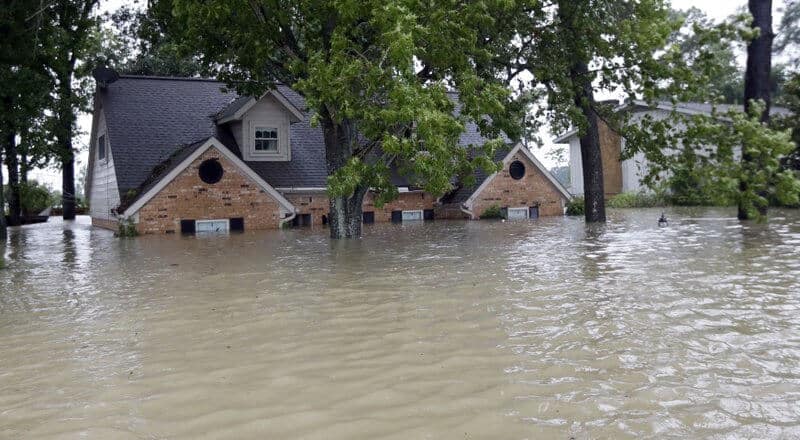
We have all experienced unprecedented devastation to our city and property as a result of Hurricane Harvey. This has been both physically and mentally exhaustive for everyone, especially for those that have experienced direct flooding of their property and for those worried about friends and family during this mammoth storm. We at Marwood Construction would like to express our heartfelt sympathy to those who have suffered during this catastrophic event.
As of the publishing date of this article, the storm has moved out of the area and the water levels are slowly returning to normal. Homeowners are now turning their attention to renovating their ravaged homes. The unpleasant and misfortunate aspects of homeowners rebuilding their homes after the storm is the battles with insurance companies over claims and the heighted increase of dishonest repair contractors coming to our area.
We understand and can empathize with the needs of the stressed out homeowners sense of urgency to put their home and lives back to normal. We have some recommendations to approach this process cautiously and deliberately before you commence with an home remodel improvements.
Preparing for the Insurance Claim
- Photograph and document the damages to both personal and real estate property.
- Take a few minutes to review your Homeowners Policy and make some notes,
- Contact your insurance company to place a claim and discuss in detail what is covered and what items are not. Much of the damage caused by Hurricane Harvey is caused by flood water damage. Without a flood insurance policy, insurance companies are very reluctant to pay on hurricane damage claims when the damage was caused by non storm surge flood waters.
- Make medium term lodging arrangements
Assess Your Homes Damage
Cosmetic Damages
If your home has experienced water infiltration from 2 inches to 12 inches in depth and no structural damage, you are likely only to need new flooring and removal of the baseboard, insulation and drywall up off the floor about 24 inches. This type of work can be successfully removed by DIY or novice level labor. The important aspects are to allow the previously covered home to dry out sufficiently. Although unattractive, these conditions can normally allow your home to be habitable during restoration.
Mass Flood Water Damage or Structural Damage
If your home has roof damage, blown out windows or sustained substantial amounts of storm water you will need to have your home assessed by a qualified and reputable general contractor. You will likely need to make longer term temporary housing needs while you plan your home renovation project.
In most cases it is important to remove the water damaged materials from the home. This debris should be gathered for removal to a land fill. It is not advisable to pile water damaged materials on the curb for pick up if it can be avoided. Allowing the structure to dry out and be dehumidified is essential prior to rebuilding the home.
Once the home is completely dried out it should be inspected by professional and reputable remodeling contractors. Some of the homes components that you should plan on completely replacing are electrical components such as wiring, electrical fixtures, duplexes, switches and electrical panels if completely submerged. Appliances with motors such as refrigerators, freezers, washers and dryers that were completely submerged should be replaced. HVAC equipment should be carefully inspected by a licensed technician to determine the equipments fitness to re-operate without replacement.
Plan Design & Permitting for Home Disaster Remodeling
The normal remodeling process can take from 8 weeks to 12 months, depending on how extensive your home remodeling project is defined. The upcoming aftermath of Hurricane Harvey will require 1,000’s of homes to be properly repaired and remodeled. This immediate demand for major home renovations will be an unprecedented event in Houston. Owners should plan and expect a much longer time duration for these repairs and home remodeling projects to be started and completed.
The enormous demand will greatly outweigh the current local supply of labor and material needs for all these projects. Owners will need to be patient and disciplined not to accept a repair offer out of desperation. It is in the owners best interest to wait for qualified remodeling contractors in the long run, rather than to have your home poorly rebuilt or to have your home project abandoned after being started.
Once your home insurance company adjuster has inspected your property and instructed you as to your accepted claim benefits, the owner has the option of repairing the home “in kind” or conducting a redesign home remodel. In either situation selected by the owner, home plans and building permits will be required before commencing the construction improvements. These plans and specifications should be referenced documents of the repair contract between owner and remodeling contractor.
If you were previously considering a major home remodeling project, one of the huge advantages is to combine the insurance money with your remodeling home funds reserve. This can result in the home remodel of your dreams for considerably less money than you would have spent before the disaster. The expense of temporary housing and meals will also be subsidized during this period.
Another advantage of undertaking a more encompassing project is that you likely eliminate any need to inconvenience your family to undertake a future home remodeling project. Preparing and designing a greater scope major home remodeling will save you money, increase your home value, reduce the need for future major remodeling and upgrading projects. There are also a number of disaster tax benefits that can be used that would normally not be available.
Finding a Qualified Contractor
The BBB and the Texas Association of Builders recommend the following procedures for hiring a qualified remodeling contractor;
- Make sure the contractor has a permanent local business location and a good reputation with a local bank and suppliers.
- Find out how long they have been in the home construction business. The problem with non local contractors is that they may not be around after construction is complete to fulfill any warranty obligations.
- Check with your local Better Business Bureau to learn if any complaints have been filed against your contractor.
- Enter into a complete and clearly written contract with your builder or remodeler.
- Do not pay for the entire job up front or pay in cash. In fact, state law prohibits contractors in disaster areas from taking up front money unless they have held a physical business address in the county or adjacent county for at least one year. This law, found in Chapter 58 of the Texas Business and Commerce Code, provides other valuable protections for those rebuilding in disaster areas.
- Be cautious of unusually low-priced bids or a hard-sell to “sign today” for a low price schemes
- Texas does not impose sales tax on labor but does tax materials consumed
- Research the business or contractors name for verified reviews.
Relevant Useful Resources for Disaster Recovery
- Texas Association of Builders | https://www.texasbuilders.org/about-us/consumer-information.html
- National Association of Home Builders Disaster Recovery Resources | https://www.nahb.org/en/consumers/homeownership/disaster-recovery-resources.aspx
- National Association of Home Builders Disaster Recovery Websites | https://www.nahb.org/en/consumers/homeownership/homeownership-articles/disaster-recovery-websites.aspx
- Office of Governor Greg Abbott | https://gov.texas.gov/news/press-release/23464
- Texas Department of Public Safety | https://www.dps.texas.gov/dem/stateLocalOrganizations.htm
Red Cross | www.RedCross.org - Salvation Army USA | www.SalvationArmyUSA.org
- Better Business Bureau | www.BBB.org
- Federal Emergency Management Agency | https://www.fema.gov/
- If your insurance policy information has been lost, the Texas Department of Insurance (TDI) can help you locate your agent or insurance company. Call TDI’s Consumer Help Line at (800) 252-3439 for assistance.











